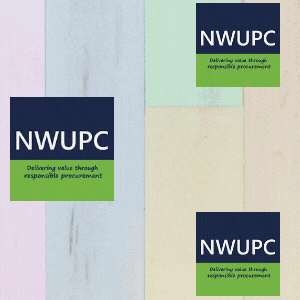On Site COVID-19 Testing Guidance
UKUPC (UK Universities Purchasing Consortia) have worked together to create the following guidance which provides the necessary and relevant information regarding on-site COVID-19 testing, including
• Types of testing
• Considerations for delivering your own testing for staff and / or students
• Routes to market
• Questions to consider
The full guide can be found below.
 |
|
SARS-Cov-2 (COVID-19) Testing Information for members of University Purchasing Consortia This paper is a first attempt to pull together a wide range of information regarding SARS-Cov-2 (COVID-19) tests, testing and what our members are doing in order to inform those who are considering the options available to them for their own organisation. |
N.B. All information in this document should be used as a guide only and readers should satisfy themselves, via their suppliers, that any products or services requested will meet the needs for which they are intended.
This is a living document; it will be regularly updated to reflect any changes in legislation or scientific advancements as well as reflecting government advice and the changing landscape.
Update Log
|
Date |
Overview of Update |
Updated By |
|
21/09/20 |
First issue |
Emma Keenan/Matt Johnson |
Contents (click on the subject area to be taken directly to it)
Coronaviruses are a family of viruses that cause respiratory and intestinal illness in animals and in humans. There are several different types which have been found in people. Generally, those who suffer with the disease present with a mild cold however the 2002 SARS epidemic demonstrated they can also cause severe disease and death. COVID-19 (SARS-CoV-2) which has been affecting people worldwide, is most closely related to a group of SARS-CoVs found in humans, bats, pangolins, and civets.
Even though there are many similarities between the new COVID-19 and the virus that caused the SARS epidemic, there are also differences resulting from changes in their genomes. This includes how they are passed from one individual to another, and the differing symptoms of coronaviruses. Early reports suggest that the new coronavirus is more contagious than the virus that caused SARS but less likely to cause severe disease. It is possible that there will be other, different coronaviruses which we will be required to deal with in the future.
Testing for those who have symptoms or suspect they have been in close contact with someone who has COVID-19 can provide a quick identification of new cases, fast treatment for those who need it, and immediate action can be taken to reduce the spread. Many organisations test their staff weekly – whether they have symptoms or not. The majority of testing however is undertaken only for those people who are showing symptoms.
Antibody testing can be useful to understand whether someone has had the disease and who now may be immune. A high percentage of people with immunity adds to "herd immunity," which usually protects the larger community.
Knowing who has been infected also is important because people with immunity from COVID-19 can safely work in essential settings such as health care, public safety, and the service industry. Additionally, it may be possible to work in non-essential settings with less personal protective equipment.
What are the types of testing being undertaken?
Symptomatic testing
A virus test is used to check if you currently have coronavirus. Different terms are often used interchangeably to refer to these virus tests, including it being referred to as an antigen test.
Having a virus test involves a swab sample being taken. A swab is a small piece of soft, absorbent material on a plastic stick that is used to take a sample from the nose and throat of a patient.
The swab is then sent to a laboratory for a polymerase chain reaction (PCR) test, which looks for the presence of a virus’s genetic material, or an Antigen test which looks for specific proteins on a
virus’s surface. Antigen tests produce results more quickly but may be less sensitive.
Anyone who has symptoms should make use of the NHS testing facilities.
Asymptomatic testing
People who do not have symptoms (‘asymptomatic’ people) are tested for the virus only in specific circumstances. Testing people who do not have symptoms can have useful public health benefits in the following situations:
-
when carried out as part of a study
-
to detect cases before people enter a high-risk setting such as health or social care
-
where there is strong reason to believe there is a high level of coronavirus present in the relevant setting
This method of testing is not yet recommended by the UK Government. If you take a test when you do not have symptoms and you receive a negative result, it does not guarantee that you do not have the virus.
Antibody testing
By taking a sample of blood serum, scientists can perform an antibody test. A positive antibody test tells you that you have been infected with coronavirus in the past.
It is not clear if being infected in the past means a person is immune and they cannot get infected with coronavirus again in the future. It is also not clear if they can pass the virus onto others.
Scientists are working to understand how a person’s immune system responds to coronavirus, including if a person is immune after they have been infected with coronavirus and if so, how long this might last for.
Antibody testing is not yet widely recommended, and you should undertake your own research as to the appropriateness of this type of testing.
Are you considering delivering your own testing for staff and / or students?
We know a number of universities have already put in place arrangements to offer students tests. Cambridge University, UEA, and Oxford are examples however there are more. There is no formal guidance confirming that Universities must offer testing. Universities are taking advice from a wide range of official sources, as well as recognising the safety, physical and mental health of its staff and students at this time. Each institution makes their own independent decision.
As above, being able to identify cases of COVID-19 quickly enables faster action to minimise outbreaks across a campus. Universities should consider how the testing could be undertaken, and by whom – should the test be administered by an expert or, if self-testing with results shared back to the individual, will be more appropriate.
Consideration should be given as to whether tests should be provided only for those with symptoms – or for all individuals. If only symptomatic testing is being provided, it may be more appropriate to utilise NHS testing facilities. Self-Referral is available online and it may be useful to understand the options and provide appropriate guidance for individuals in your institution.
It is evident that the demands currently on the NHS are growing and consideration of other options for a swifter resolution to a suspected case may be appropriate.
The Government is piloting a number of different types of tests which may provide an alternative to the currently used options and offer a faster response. These include saliva and blood tests and a variety of analysis options. You should ask providers for the details of all the options they can provide and be aware that this may change over the coming weeks and months. Your specification should detail what you need.
Certification and validity, testing, and analysis
Tests
In order for a test to be safe to use, the company that develops tests must comply with the In Vitro Diagnostic Medical Devices Directive as implemented in the UK by Part IV of the Medical Devices Regulations 2002. Once they do, they are allowed to print a ‘CE’ mark on their test. This CE mark represents a declaration by the company that the test meets all of the legal criteria.
Tests will only be as reliable as the manufacturer claims if they are used in the way intended by the manufacturer. It is important to follow the manufacturer’s instructions for use.
There are different stages to the testing process. A ‘CE’ mark is only valid if the following events happen in the way intended by the manufacturer:
-
Collection of a sample (sometimes using a sampling kit)
-
Testing of that sample
-
Reading and interpretation of results; and
-
The provision of the result is accompanied by information to help you understand what they mean
-
These stages are different for COVID-19 virus testing and COVID-19 antibody testing.
You should check your provider is following the appropriate methods.
Analysis
Suppliers providing analysis services must be registered with the Care Quality Commission for the regulated activity of diagnostic and screening procedures if they carry out either of the following:
-
removing tissues, cells, or fluids (including blood samples) from a person
-
analysing the samples (whether undertaken separately or in conjunction with one another).
This includes any of the following:
-
removing a sample from the patient and sending that sample on to a laboratory for analysis
-
both removing a sample and using equipment to examine the sample to detect the presence of coronavirus
-
using equipment to examine a sample to detect the presence of coronavirus or antibodies.
This question is included in the list of suggested questions you ask potential providers.
What are the routes to market?
When you have decided the approach you would like to take; purchase tests, purchase test analysis services or purchase a full testing and analysis service, the UK Universities Purchasing Consortia have in place some EU compliant framework agreements, the suppliers on which are able to offer you a variety of options.
For the purchase of tests
The NEUPC national Life Sciences Reagents Kits and Consumables agreement lists a number of suppliers who are able to provide a variety of tests. We have approached all suppliers and asked if they can provide tests, the spreadsheet below details those who have confirmed they can and contact details.
The full information on how to call off from the contract is available on the higher education contracts database. The person responsible for procurement in your organisation will have access to this and will be able to confirm the most appropriate and compliant way of purchasing the products available.
For test results analysis and provision
The NEUPC Molecular Biology Research Services agreement lists a number of suppliers who are able to provide test analysis services.
The full information on how to call off from the contract is available on the higher education contracts database. The person responsible for procurement in your organisation will have access to this and will be able to confirm the most appropriate and compliant way of purchasing the products available.
For a full service
Some occupational health suppliers are able to provide managed testing and analysis services. The LUPC Occupational Health and Wellbeing for students and staff agreement lists a number of suppliers under Lot 2 who may be able to provide these.
As these services are more complex and will require more integration into your organisation you should research thoroughly what your requirements are and work closely with a wide range of stakeholders in your organisation as well as discussing with suppliers the options available to you.
We have not provided example questions for you at this time, some of those related to the purchase of tests and analysis will be appropriate however there will be likely many more relating to your specific requirements.
Once again, the full information on how to call off from the contract is available on the higher education contracts database. The person responsible for procurement in your organisation will have access to this and will be able to confirm the most appropriate and compliant way of purchasing the products available.
What questions should you ask?
If you wish to understand price and availability for your testing requirements, we have included a basic form which will enable you to quickly approach the market asking key questions.
Included in this form are core questions, you will likely wish to add more which will be specific to your own organisational needs. You do not need to use this form; it is a guide only.
Instructions on how to use. Open the Excel document. Complete your organisation details on the first tab, decide which questions you need included in the second tab, add more if required. You will note there are drop down boxes for the supplier to complete their responses (to ensure uniform returns). Amend any other parts you need to and then send directly to the supplier/s you wish to approach.
If you need any help, please contact your regional consortium contact detailed below.
It is important to consider all of the above alongside the practical advice you are providing staff and students and how it will link together.
Should you require further information please contact: NWUPC Senior Category Manager Natasha Peacock at Natasha.Peacock@nwupc.ac.uk.
The .gov information for Higher education on reopening buildings and campuses
Information on the testing service available via the NHS
A Universities UK document, details the contribution Universities are making on the fight against COVID-19






